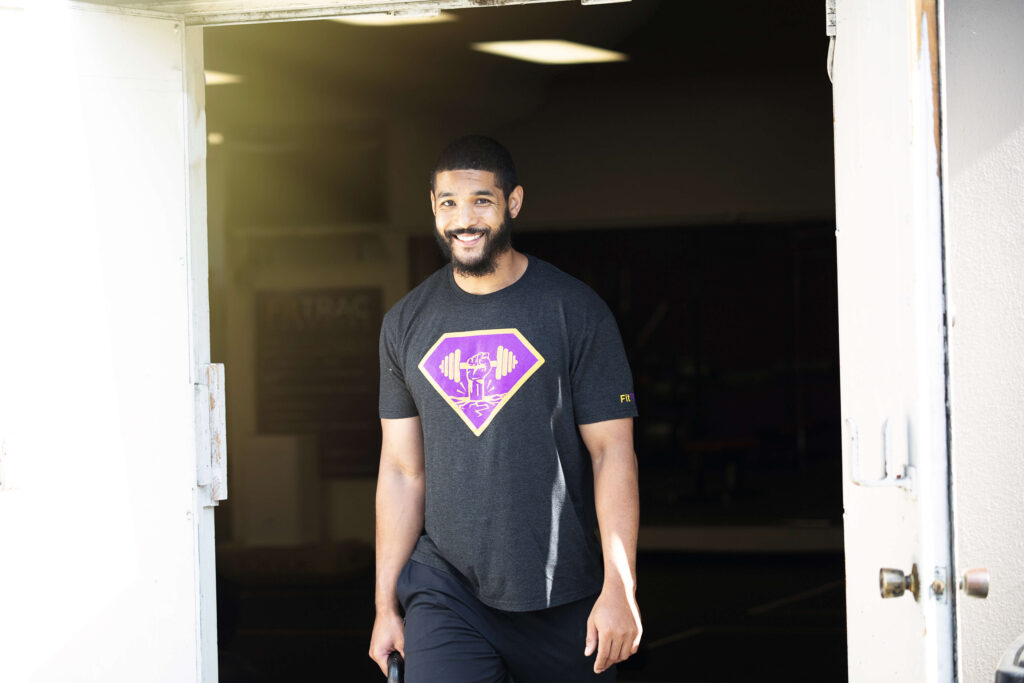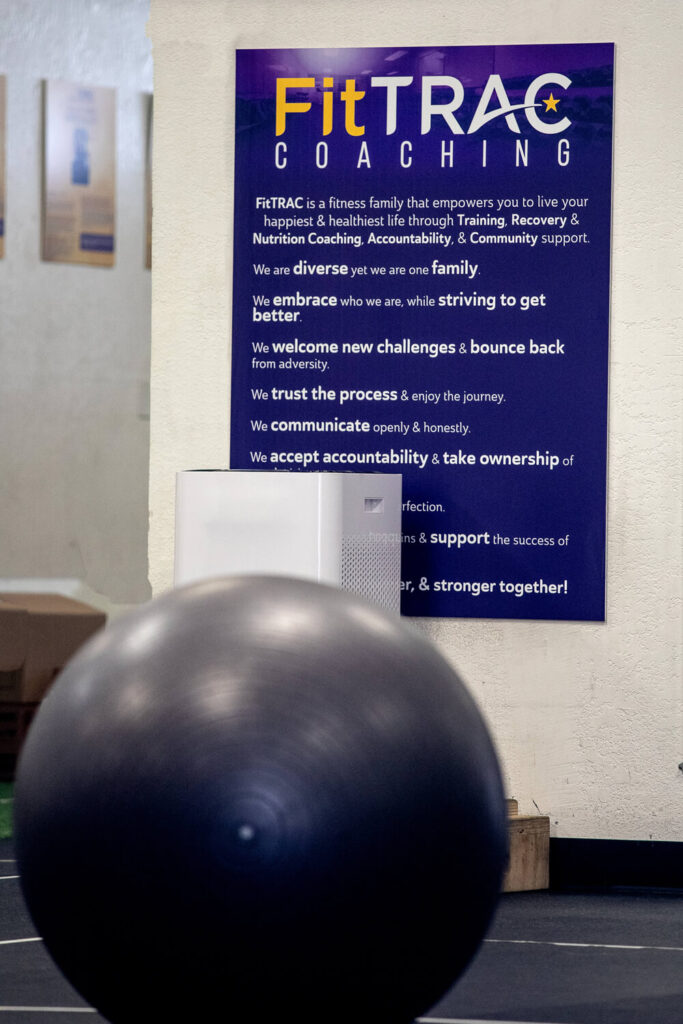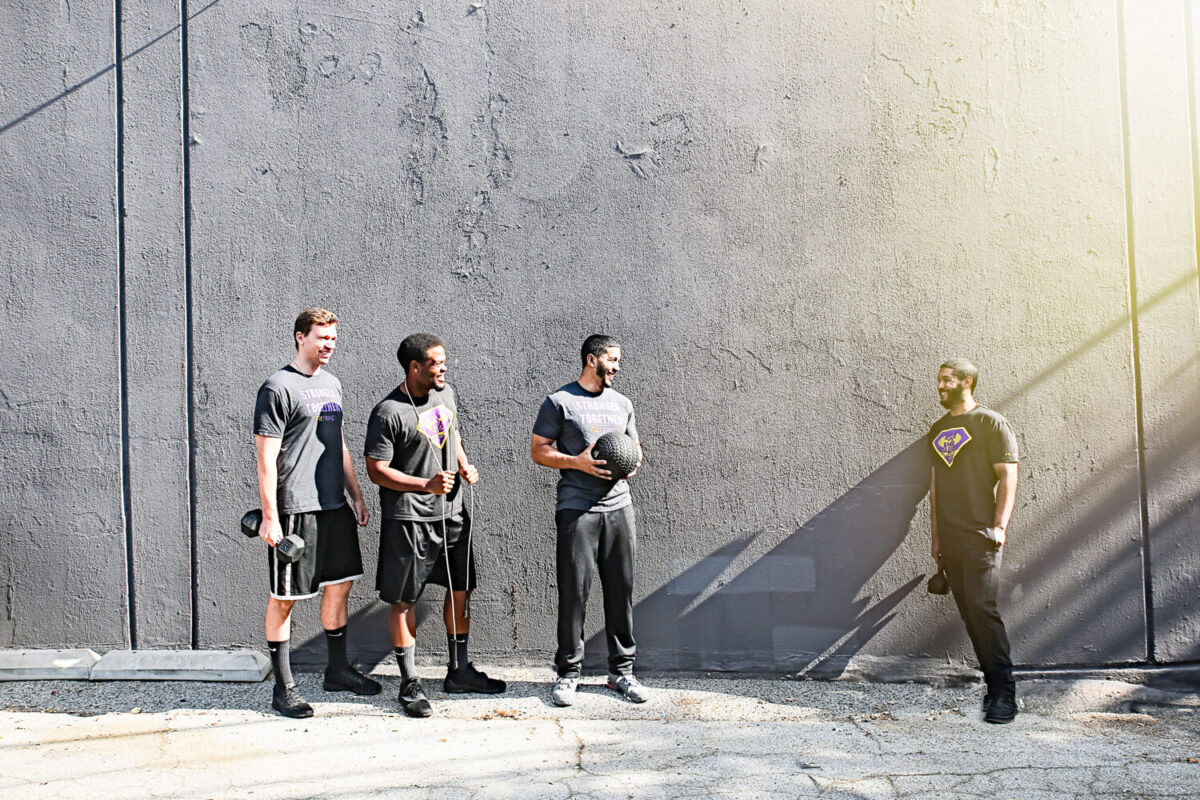When FitTRAC Coaching owner C.J. Easter looks back, he can clearly see how his focus, agility and drive transformed into what he does now—helping others stay accountable with their health and fitness goals. C.J. and his younger brother Kenneth grew up competing in sports in their Foster City backyard. As C.J. acknowledges, “We probably played more tackle football than my mom would have liked.” The brothers had everything they needed to build their athletic skills: a grass lawn, basketball hoop and each other.
Already a fast kid, C.J. added a new component to his athletic ability in high school. “I spurted up around my sophomore year; I kept my athleticism and got bigger,” he recalls. The San Mateo High School Sports Hall of Famer played football, basketball and baseball while excelling in academics. Named Academic Athlete of the Year as a junior, he graduated valedictorian of his class.
When it came to playing college-level football, C.J. chased his dream of becoming a Stanford Cardinal. Stanford coaches expressed interest in C.J.’s athletic ability, but ultimately he was accepted on academics and subsequently invited to participate on the team as a walk-on player in 2005. “I had to hustle, scrap and grind to get myself on the field any way possible,” says C.J. of his time playing cornerback on the Cardinal roster.
As a freshly-minted Stanford grad, C.J. started his own sports performance training camp in 2009. The camp focused on speed training to help student athletes run faster and jump higher, but C.J. found it difficult to coordinate around school and sports season schedules. Just when he was questioning whether his camp was sustainable, the unexpected happened: the parents of the kids C.J. trained asked to be trained as well.
C.J. subleased a gymnastics studio and began offering training for adults, packaged as high-intensity workouts to help transform body weight. Success encouraged him to replicate the training in four locations: Burlingame, Redwood City, Menlo Park and Santa Clara. As the business expanded, C.J. built up his core team, bringing on his brother Kenneth, Darren Moore and John Mack.

C.J. also honed the overarching FitTRAC mission, encompassing training, recovery & nutrition coaching, accountability and community support. Attracting a range of clients—with an emphasis on women between 40-60—FitTRAC’s coaching component comes in the form of motivational and individual support. “The gap that needs to be closed is someone holding you accountable to do it when it’s hard and when life tries to get in the way,” C.J. notes. “Our coaches want to see clients succeed, and not only that, their peers want to see them succeed. We try to rally our community together and make it something bigger than just fitness or going to the gym—it’s like a second family.”
Each FitTRAC client works with a personal exercise coach who teaches fundamental movements and adapts the program to the appropriate fitness level. The coaching includes a personalized nutrition and lifestyle program, geared to tackling unhealthy habits and working toward a realistic goal. “You can’t out-exercise a bad diet,” C.J. points out.
When the pandemic started making news, C.J. and his team anticipated the shelter-in-place order and quickly pivoted to move coaching sessions online. FitTRAC only missed a half-day of training sessions during the transition, and C.J. was gratified to see the majority of clients staying on. “I think we had 75 of our clients on that first initial training session,” C.J. says. “It almost brought tears to my eyes. It was something completely brand-new, and we didn’t know what to expect.”

During FitTRAC’s two-way online group sessions, multiple coaches participate, explaining the exercises, keeping everyone motivated and correcting form.
As health and social justice issues surfaced this year, the FitTRAC family banded together to make a positive difference. Through various initiatives, including a 14-day At-Home Challenge, FitTRAC raised contributions for struggling small businesses, Second Harvest Food Bank and FitTRAC Coaching scholarships for Black women.
FitTRAC’s swift move to virtual coaching sessions is helping boost accessibility—whether it’s new members migrating over from shut-down gyms or former clients living out of the area logging on to reunite with their FitTRAC family. Recruits are even showing up from Southern California, and C.J. is looking to expand throughout the entire state. And while he looks forward to the full reopening of FitTRAC’s physical locations, he sees virtual training becoming a permanent part of FitTRAC’s business model. “It’s convenient,” C.J. says, which translates into clients working out more often. “There’s no traffic, there’s no gym drive time, they get out of bed, turn on their computer and they are working out.”
For those who haven’t found an exercise rhythm yet or who have fallen into unhealthy habits, C.J. advises to be mindful of the current stresses in life. “Be understanding of yourself,” he says. “Just add incremental changes you can stick with to get some positive momentum going and then start to add onto that a little bit at a time.”


